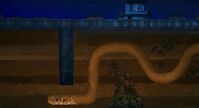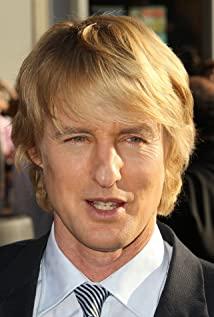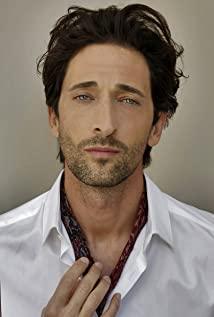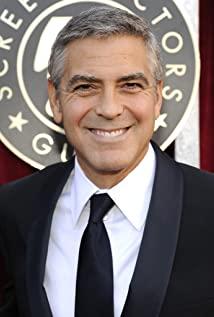The subtitles at the beginning of the movie still continue the bright and comic-colored fonts in Webster's movies. When the fox couple at the beginning of the movie were arrested, the wife suddenly said: "I'm pregnant". This kind of plot may seem very strange in other people's movies, but in Webster's movies, it is not surprising that the protagonist suddenly makes a sentence that is very disconnected from the environment. For example, in "Aquatic Life", the father and son recognized each other, and the captain’s wife left in anger. The captain chased to the beach, and his wife suddenly ran into the screen. Seeing underground, he said, “This year’s crab is back so soon.” He said, “Yes. Ah, this is very unusual." Then she left again.
When the movie progresses to introduce the three villains, it is a typical Webster's introduction. You can refer to the documentary at the beginning of "Aquatic Life" to introduce each crew member. There are also various extracurricular activities that the protagonist participates in school in "Youth and Youth". Similar to the fonts in movies, this is also an extremely comic expression method, straightforward, simple and interesting.
The possum is a very interesting role in the movie. When we look back at Webster’s other movies, we can find that many supporting roles are very interesting. The mouse reminds me of the little attendant in "Youth and Younger", "Water The Klaus in "Dwelling Life", the Indians on the train in "Crossing Darjeeling", these common characteristics are a bit weird (of course this is one of the common characteristics of Webster's movie characters), they can all provide laughs in the movie , And promote the development of the plot at a critical moment.
The appearance of the wolf at the end of the movie is very similar to the appearance of the shark in "Aquatic Life". The difference is that the shark is always a clue in "Water", the beginning and end of the contradiction, and the main purpose of the characters. And in "fox", the wolf always appears in the mouse’s mouth, reminding the audience not to forget, but everyone may only regard this as another sneer of Webster’s, so when the wolf does appear, I also have a kind Feeling of surprise.
Why do wolves appear? There is no doubt that this serves the plot of the movie. In the movie, the fox father constantly emphasizes that he is a wild animal, and finally he also awakens the natural wildness of all animals. This kind of wildness is said to be just a kind of animal. Instinct is rather a yearning for freedom, and what is the end of freedom is loneliness. Therefore, the wolf in the movie is the most free, because he is the loneliest. In the movie, the wolf is in a piece of ice and snow, but on the other side of the picture, the place where the foxes are located is warm and sunny. This is not only a kind of Exaggeration is also a hint that the warm world is stable and safe, and it belongs to the family. Father Fox chose this one. But once, he might have another plan: go to a cold place, where dangers are everywhere, but There is real freedom.
So Dad said, "Look, how beautiful." Then he almost shed tears. He felt like seeing another himself, feeling that the confusion he had been in for a long time had finally been answered, and he was relieved from it. Waved, the wolf waved, and then the wolf left, and then bid farewell to the fox, and the fox went back on the road and returned to the family.
It’s very interesting. In the episode of "Aquatic Life" meeting a shark, the captain’s wife also said: "Steve, it’s so beautiful." The meaning of this sentence in this movie is completely different from that of "fox". Now, although the lines are almost the same.
At the end of the movie, we saw the various rooms and actions of the underground animals in the screen, which is not much different from the structure of the ship introduced in "Aquatic Life". It’s just more difficult to shoot with the real scene of the movie, so animation is really a suitable way of expression for Webster, especially the rough, ancient, weird and beautiful animation method with the edge of stop motion animation.
To sum up the characters in the movie, Dad Fox seems to be the most perfect dad in Webster’s movies. The "dad" in "Youth and Youth" has always competed with the protagonist for his girlfriend, and he is also like a child. Although the protagonist's real dad supports all the actions of his son, he cannot guide him in his career. Become an athlete because my father is a legend who is good at sports. The dad in "Genius Family" is the worst, but the dad in "Aquatic Life" simply refuses to be a dad because he hates these two words, and the death in "Crossing Darjeeling" is almost the same.
To sum up, the fathers in Webster's movies have the characteristics of "childishness" and are not good at being a father. Of course, "returning to father" is also a common plot line in Webster's movies.
Although Dad Fox initially ignored his son, he did not do anything that hurt the heart of the child in "The Genius Family", nor did he refuse to perform his father's duties. In short, "The Great Fox Dad" The father here is the one with the least "anti-social and anti-growth" tendency in Webster's movies, although it is still inevitable.
The mother fox is a bit like the wife of the captain in "Aquatic Life", but the overall lack of personality does not give people a greater surprise in the movie.
The fox son Ash reminds me of Owen Wilson in Webster's debut "Bottled Rocket". In fact, there is no similarity in behavior, but the temperament is very similar.
In conclusion, fantastic Mr. Fox is still a very Wes Anderson movie. If you want to add a special mark to it in the Webster’s movie list, then you can say “this is the most smooth and traditional plot in Wes Anderson’s movie”, because in addition to Outside of "Youth and Younger", the plot of Webster's movies always shows the phenomenon of "pause" that is not common in mainstream movies (sorry, I can't find other words for the time being). For example, the "pause" in "Bottled Rocket" is in the protagonist After arriving at the hotel, the plot of theft suddenly turned to love. When preparing on the boat in "Aquatic Life", the narrative line of looking for sharks suddenly turned to the emotional disputes of several characters. When it came to "Crossing Darjeeling", there was a comparison. The more "serious" slow motion and music technique of "Genius Family" is more lyrical and more prominent in style, but the narrative is farther and farther away from mainstream movies.
I think this may be the reason why Webster's movies have always been "marginal" (although the subject matter is not unsuitable for children, it is simply suitable for all people on earth), and the evaluation is always polarized. Because of the unique film language and story theme, he can never stand in the same team with the film masters who make serious films or the big directors who make commercial films, so the box office of each film is not very high, and of course he will not lose money. It is impossible to win any awards at the three major film festivals (although it is common for him to be shortlisted), and because of the constant repetition and evolution of styles and themes, there may be more media criticisms. Looking at it in this way, it is simply alive and well. A wordy allen!
But because of the above reasons, because of the margins, because of uniqueness, because of his film language and theme, and even because of his seldom changes in the creative staff and actors, there is always a small group of audiences who always support his films, and I am one of them. One, no matter how the media evaluates, no matter whether the movie wins an award, we can see love, loneliness, and ourselves in each of his movies.
I think this is the real American independent film. (Not bloody, immutable, non-mainstream, very weird, very fresh, very loving).
ps: The theft in the movie also reminds me of "Bottled Rocket", but it's much smarter.
View more about Fantastic Mr. Fox reviews











